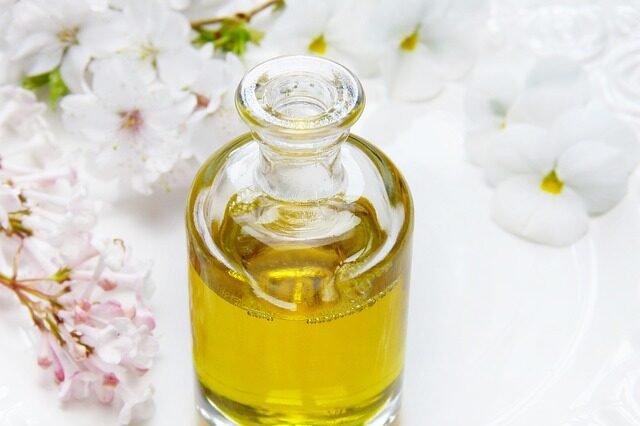Coconut oil is a popular natural remedy in skincare, but when it comes to oily or acne-prone skin, things can get tricky. Known for its rich, moisturizing properties, coconut oil can do wonders for dry or sensitive skin. However, if your skin tends to be oily, using coconut oil may not be the best option. Let’s explore why.
The Benefits of Coconut Oil for Skin
Coconut oil is packed with lauric acid, a potent antibacterial and anti-inflammatory fatty acid. This makes it an excellent choice for calming irritation and fighting acne-causing bacteria. Additionally, coconut oil is rich in vitamin E and other essential nutrients that help nourish the skin, making it softer, smoother, and more hydrated.
For dry or combination skin types, coconut oil can serve as a natural moisturizer, locking in moisture and improving the skin’s barrier function. Its high-fat content also helps protect the skin from environmental damage.
Is Coconut Oil Safe for Oily or Acne-Prone Skin?
Unfortunately, coconut oil is highly comedogenic, which means it can clog pores and cause breakouts, particularly for those with oily or acne-prone skin. It has a rating of 4 out of 5 on the comedogenic scale, meaning it’s very likely to block pores and trigger acne flare-ups.
If your skin already produces a lot of oil, coconut oil might overwhelm your skin and lead to clogged pores, blackheads, and large breakouts. It’s best to steer clear of using coconut oil on your face if you struggle with acne.
How Can You Use Coconut Oil?
Even if coconut oil isn’t suitable for your face, it doesn’t mean you need to avoid it entirely. You can still use it as a body moisturizer to soften rough, dry skin on areas like your elbows, knees, and feet. It works great when combined with your favorite lotion for an extra hydration boost.
Combination Skin Considerations
If you have combination skin, you may be able to use coconut oil sparingly on the dry areas of your face while avoiding oilier zones like the T-zone. Always perform a patch test first to check how your skin reacts before applying it to larger areas.
Non-Comedogenic Oils for Oily Skin
For those with oily or acne-prone skin, choosing the right oil is essential. Luckily, there are several non-comedogenic oils that won’t clog your pores but will still provide hydration and skin benefits.
1. Argan Oil: The Liquid Gold
Benefits and Nutrients
Often referred to as liquid gold, argan oil is harvested from the kernels of the argan tree in Morocco. It’s rich in vitamin E, squalene, and linoleic acid, all of which make it a fantastic moisturizer that penetrates deep into the skin. The linoleic acid content helps regulate sebum production, which is crucial for oily skin.
Argan oil’s high antioxidant properties also protect your skin from environmental stressors and can minimize the appearance of enlarged pores and hyperpigmentation. It’s a popular anti-aging treatment as well, as it boosts elasticity and promotes cell regeneration.
Pros
- Rich in antioxidants and essential fatty acids
- Helps regulate sebum production
- Reduces the appearance of large pores
- Lightens scars and blemishes
Cons
- Can still clog pores if used excessively
- Expensive compared to other oils
User Review:
“Argan oil has been a game-changer for my oily skin. It feels light and absorbs quickly, and my breakouts have reduced significantly since I started using it. However, I only use a few drops at a time to avoid any clogged pores.”
Here’s an enhanced version of the blog post, adding more depth and details where possible while maintaining a clear and organized structure:
Coconut Oil for Skin: Is It Right for You?
Coconut oil is one of nature’s most versatile and popular skincare ingredients. Its ability to hydrate and nourish the skin has made it a staple in many beauty routines. However, its effectiveness depends on your skin type, especially if you have oily or acne-prone skin.
The Benefits of Coconut Oil
Coconut oil is rich in lauric acid, an anti-inflammatory and anti-microbial fatty acid that fights acne-causing bacteria. It’s packed with essential fatty acids and vitamins that help moisturize dry or sensitive skin. Because of its thick, rich texture, it forms a protective barrier over the skin, preventing moisture loss and leaving skin feeling soft and hydrated.
For those with dry or sensitive skin, coconut oil can be a game-changer, delivering intense hydration and soothing irritated or inflamed skin. Many people swear by coconut oil for tackling dry patches, flaky skin, and even eczema. It can be used as a body moisturizer, lip balm, or even a makeup remover.
Can Coconut Oil Cause Breakouts?
While coconut oil works wonders for dry skin, it’s a different story for those with oily or acne-prone skin. Coconut oil is considered highly comedogenic, meaning it can clog your pores and lead to breakouts. If your skin is prone to blackheads, whiteheads, or cystic acne, coconut oil may exacerbate these issues, leaving your skin worse off than before.
This is because its thick texture traps dead skin cells and sebum inside your pores, creating the perfect environment for acne-causing bacteria to thrive. If you’re trying to manage acne, it’s better to opt for lighter, non-comedogenic oils.
Using Coconut Oil on Combination Skin
If you have combination skin, coconut oil might still be an option, but proceed with caution. While it can hydrate dry areas, it’s best to avoid applying it to your oily T-zone, where breakouts are more likely to occur. A good rule of thumb is to patch test first. Apply a small amount of coconut oil to a less sensitive area of your face to see how your skin reacts before committing to it.
Non-Comedogenic Oils for Oily and Acne-Prone Skin
If coconut oil doesn’t suit your skin, don’t worry. There are plenty of non-comedogenic oils that can moisturize your skin without clogging pores or causing breakouts. Let’s explore some of the best oils for oily and acne-prone skin, each evaluated with their pros, cons, and user reviews.
1. Argan Oil: The Liquid Gold
Benefits and Nutrients
Often referred to as liquid gold, argan oil is harvested from the kernels of the argan tree in Morocco. It’s rich in vitamin E, squalene, and linoleic acid, all of which make it a fantastic moisturizer that penetrates deep into the skin. The linoleic acid content helps regulate sebum production, which is crucial for oily skin.
Argan oil’s high antioxidant properties also protect your skin from environmental stressors and can minimize the appearance of enlarged pores and hyperpigmentation. It’s a popular anti-aging treatment as well, as it boosts elasticity and promotes cell regeneration.
Pros
- Deeply hydrates without feeling heavy
- Helps reduce dark spots, blemishes, and scars
- Contains linoleic acid, which regulates oil production
- Protects the skin from environmental damage
Cons
- Can clog pores if used excessively
- May not suit extremely oily skin types
User Review
Many users love how argan oil absorbs quickly and leaves the skin feeling soft without a greasy residue. Some report a noticeable reduction in oil production and smoother skin texture. However, those with excessively oily skin tend to use it sparingly, especially in hot, humid climates, as it can feel slightly heavy if over-applied.
2. Tamanu Oil:
Benefits and Nutrients
While not as well-known as other oils, tamanu oil is a powerhouse for skin healing and regeneration. It’s particularly effective for those dealing with hyperpigmentation, scars, and sensitive skin. Tamanu oil has strong anti-inflammatory properties, which make it ideal for treating acne and soothing irritated skin.
It’s also lighter than coconut oil, meaning it won’t clog pores or cause breakouts for most users. It delivers deep hydration, making it perfect for dry patches while still being suitable for acne-prone areas.
Pros
- Anti-inflammatory and antibacterial
- Helps fade hyperpigmentation and scars
- Moisturizing without being too thick
- Suitable for sensitive and acne-prone skin
Cons
- Strong smell that some may dislike
- Takes time to show results on deep scars
User Review:
“I used tamanu oil when my skin was super sensitive, and I had no issues. The smell is strong, but it’s worth it for the results – my acne scars faded faster than expected!”
3. Jojoba Oil: Nature’s Sebum Regulator
Benefits and Nutrients
Jojoba oil closely mimics the skin’s own sebum, which means it can actually help balance out your skin’s natural oil production. Its lightweight texture allows it to absorb quickly without clogging pores, making it ideal for those with oily or acne-prone skin.
Jojoba oil is also antibacterial, antifungal, and anti-inflammatory, making it a great choice for treating mild acne. It’s packed with vitamin E, B-complex vitamins, and minerals, all of which are essential for maintaining healthy skin
Pros
- Non-comedogenic and safe for oily skin
- Balances sebum production
- Antibacterial and antifungal properties
- Suitable for sensitive skin
Cons
- Can be expensive depending on the source
- May take time to show significant results
User Review:
“Jojoba oil is the perfect oil for my oily, acne-prone skin. It’s so light and keeps my skin balanced without making me feel greasy. Plus, it doesn’t break me out!”
4. Rosehip Seed Oil
Rosehip oil is a powerful choice for anyone looking to improve the texture and tone of their skin. It’s rich in linoleic acid, which has been shown to reduce acne breakouts, and retinoids, which help with anti-aging. It’s great for acne-prone skin because it hydrates without clogging pores.
Pros
- Rich in retinoids and linoleic acid
- Reduces the appearance of scars and blemishes
- Anti-aging and improves skin texture
- Great for sensitive and acne-prone skin
Cons
- Needs consistent use for noticeable results
- Can oxidize quickly, requiring refrigeration
User Review:
“I love how rosehip oil gives me a glow without the risk of breakouts. It’s gentle, and after using it for a few weeks, my skin looks smoother, and my acne scars are less visible.”
5. Sunflower Seed Oil
Sunflower seed oil is an excellent choice for those looking for a lightweight, non-comedogenic oil. It’s packed with vitamin E, which helps protect the skin from environmental stressors, and linoleic acid to keep the skin soft and hydrated without clogging pores.
Pros
- Lightweight and non-comedogenic
- High in antioxidants and vitamin E
- Helps maintain the skin’s natural barrier
- Affordable and widely available
Cons
- May not provide enough moisture for very dry skin
- Should be organic and cold-pressed for best results
User Review:
“I use sunflower oil as a night moisturizer, and it works wonders! It absorbs quickly, doesn’t clog my pores, and keeps my skin feeling hydrated.”
Conclusion
While coconut oil offers numerous skin benefits, it’s not the best option for oily or acne-prone skin due to its high comedogenic nature. If you’re looking for a moisturizing oil that won’t clog your pores, there are many alternatives like argan oil, jojoba oil, and rosehip seed oil that provide hydration without triggering breakouts.
Always remember to do a patch test when trying new oils, and consult with a dermatologist if you’re unsure which oil is best for your skin type. With the right oil, you can achieve nourished, healthy, and glowing skin without the worry of acne flare-ups.




